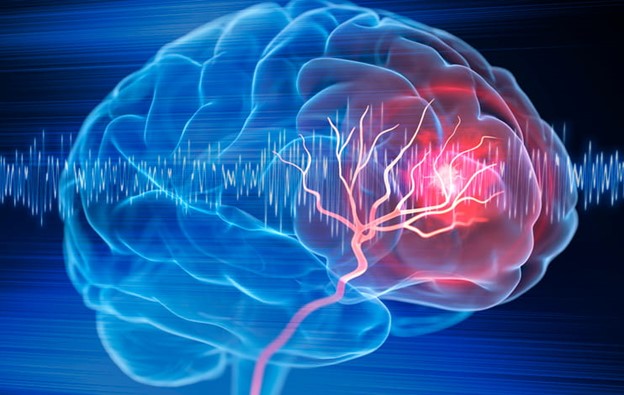
Having a healthy heart is critical to living a healthy, long life. It’s important to take the necessary steps to ensure your heart is functioning as it should and that you don’t have any lingering cardiovascular issues.
Don’t wait until it’s too late to take control of your heart health. If you have questions about the performance or function of your heart, a preventative scan can help alleviate those concerns.
At Preventative Diagnostic Center, our team provides comprehensive preventative scans that give you and your provider greater insight into your heart health. These high-resolution scans can help catch major health issues before they start and give you greater control over your overall health.
What Is the Life Expectancy After a Stroke?
A stroke can impact an individual’s life expectancy, and different factors play into this — factors such as age, overall health, and the severity of the stroke.
Numerous studies have been conducted on stroke victims and their impact on their lives, and the results are important to consider.
A 2022 study that involved 300,000 people in Australia and New Zealand found that individuals who suffered any type of stroke were linked to an average 5.5-year reduction in life expectancy.
The study highlights that individuals who suffered hemorrhagic stroke lost an average of 7.4 years of life expectancy. Hemorrhagic strokes occur when a blood vessel in the brain ruptures. Only a small portion, about 13%, of strokes are hemorrhagic.
Similarly, a 2019 Swedish study examined a sample of stroke victims, including individuals who had survived at least 30 days after their initial stroke, and found there was a 5-year survival rate of roughly 49.4% for individuals who had an ischemic stroke. An ischemic stroke is when there is a reduced or blocked blood supply to the brain. A majority of strokes that occur are Ischemic.
What Is the Mortality Rate for Strokes?
Considering that strokes are major and traumatic health experiences, the mortality rate for strokes is equally alarming. The Centers for Disease Control and Prevention reports that:
- In 2021, one in six deaths from cardiovascular disease was the result of a stroke
- Nearly one in four people, about 185,000 strokes, occur in people who have previously suffered a stroke
- About 87% of all strokes are ischemic strokes
- Strokes are a leading cause of serious long-term disability
- Additionally, more than half of stroke survivors aged 65 and older will experience reduced mobility
- While anyone can be at risk for a stroke, an overwhelming majority of stroke victims are age 65 and older
Is It Possible to Fully Recover From a Stroke?
Yes. It is possible to fully recover from a stroke, but it depends largely on the individual. A majority of people will never fully recover and will face short-term or long-term health issues that impact their mobility, speech, cognition, and other aspects of their health.
What Are the Chances of Recovering From a Stroke?
The data varies; however, it’s believed that an estimated 10% of patients will recover from a stroke almost completely. Of course, factors like overall health and age play an influence as well. Younger individuals and those who are generally healthy will often have a better chance of a full recovery.
Other estimates include that anywhere from 25% to 30% of stroke victims will partially recover, while roughly 40% to 50% will have some form of moderate to severe impairment because of their stroke.
Take Action Over Your Heart Health
While strokes do not discriminate and can happen to anyone at any time, there are still some things you can do to take control of your heart health.
One of the most effective and proactive actions you can take is to schedule a preventative heart scan. A preventative heart scan gives you detailed information on the overall function of your heart, its performance, and any health concerns that may exist. If you are searching for a heart scan near you, turn to the experts at Preventative Diagnostic Center.
What Is a Preventative Scan?
A preventative scan, such as a preventative cancer scan or a heart scan, is a non-invasive procedure that involves the use of medical equipment such as magnetic resonance imaging (MRI), CT scan, and/or X-ray machine. These high-tech machines give medical providers detailed insight into the function of critical organs like the heart.
After the scan, you will receive high-resolution imagery that can help you and your healthcare provider take the next steps in ensuring your heart health is optimal.
Benefits of a Heart Scan
If you’re unsure about your heart health or have questions or concerns about your cardiovascular system, a preventative heart scan can provide the necessary answers.
Some of the most important benefits of a hard scan include:
- Providing critical information about the overall health of your cardiovascular system
- Look for calcium deposits in the heart arteries — the build-up of calcium can narrow your arteries and result in reduced blood flow
- Identify areas of your cardiovascular system that may be compromised
- Identify early signs of coronary artery disease
- Identify potential issues with your heart valves
- Evaluate health concerns like chest pain or shortness of breath
Should You Get a Preventative Heart Scan?
If you have concerns about your heart health, have shortness of breath, or are simply looking to get an in-depth check-in on the function of your cardiovascular system, you may benefit from the results of a preventative heart scan.
At Preventative Diagnostic Center, our team can help answer all your questions and concerns. Take control of your health when you schedule your heart scan near Las Vegas with our team.
Sources:
Peng, Y., et al. (2017). Long-Term Survival, Stroke Recurrence, and Life Expectancy After an Acute Stroke in Australia and New Zealand From 2008–2017: A Population-Wide Cohort Study.
Sennfält, S., et al. (2019). Long-Term Survival and Function After Stroke
Stroke Statistics. (2024).
